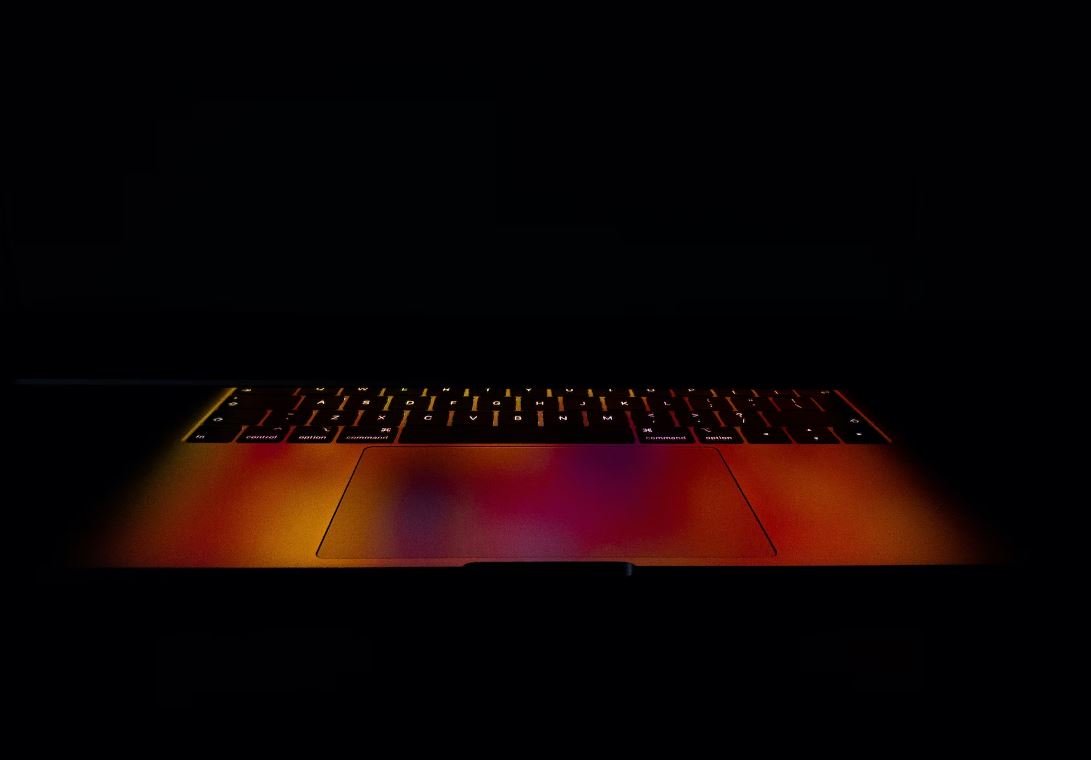Introduction
Film books are a valuable resource for any film enthusiast or aspiring filmmaker. They provide in-depth information, analysis, and behind-the-scenes tidbits about the world of cinema. Whether you want to learn about the history of film, study different genres, analyze famous directors’ works, or gain insights into the art of film production, there is a film book out there for you. In this article, we will explore why film books are worth reading and recommend some must-read titles.
Key Takeaways:
- Film books are a valuable resource for film enthusiasts and aspiring filmmakers.
- They provide in-depth information, analysis, and behind-the-scenes tidbits about the world of cinema.
- Film books cover a wide range of topics, from the history and genres of film to the works of famous directors and the art of film production.
- Reading film books can enhance your understanding and appreciation of films.
- There are numerous must-read film books available for those interested in expanding their knowledge of cinema.
Why read film books?
1. **Film books offer** a wealth of information: From the history of film to detailed analyses of iconic movies, film books are packed with valuable insights and facts that can broaden your knowledge in the field.
2. **They foster critical thinking**: Through the analysis of film techniques and storytelling, film books encourage readers to develop their critical thinking skills, allowing them to appreciate films on a deeper level.
3. **They provide behind-the-scenes stories**: Film books often feature anecdotes and stories from the filmmaking process, giving readers a glimpse into the creative and technical challenges faced by directors, actors, and crew members.
4. **They offer diverse perspectives**: Film books cover a wide range of topics, offering varied perspectives on cinema, such as gender and race representations, globalization effects, and the impact of technology on the film industry.
5. **They inspire creativity**: Learning about the techniques and artistic choices of renowned filmmakers can be a great source of inspiration for aspiring filmmakers or those looking to enhance their storytelling abilities.
Must-read film books
Here are three must-read film books that cover different aspects of cinema:
1. “The Story of Film” by Mark Cousins
This comprehensive film book takes readers on a journey through the history of cinema, exploring the major movements, innovations, and influential figures that shaped the art form into what it is today. *With its engaging storytelling and diverse coverage, “The Story of Film” offers a rich understanding of the evolution of cinema.*
| Title | Author | Publication Year |
|---|---|---|
| The Story of Film | Mark Cousins | 2004 |
2. “In the Blink of an Eye” by Walter Murch
Written by renowned film editor Walter Murch, this book explores the art and craft of film editing. Murch reflects on his experiences and provides valuable insights into the creative and technical aspects of editing. *The book’s emphasis on the power of rhythm and storytelling through editing makes it a compelling read for those interested in this crucial aspect of filmmaking.*
| Title | Author | Publication Year |
|---|---|---|
| In the Blink of an Eye | Walter Murch | 1995 |
3. “Hitchcock/Truffaut” by François Truffaut
Originally a series of interviews between French filmmaker François Truffaut and legendary director Alfred Hitchcock, this book delves into Hitchcock’s filmography and creative process. It provides deep insights into Hitchcock’s approach to suspense, visual storytelling, and his thoughts on the art of filmmaking. *For any fan of Hitchcock or those interested in directing, this book is an essential read.*
| Title | Author | Publication Year |
|---|---|---|
| Hitchcock/Truffaut | François Truffaut | 1966 |
Conclusion
Film books are not only a source of information and inspiration but also offer a deeper understanding and appreciation of the art of filmmaking. By exploring different aspects of cinema through books such as “The Story of Film,” “In the Blink of an Eye,” and “Hitchcock/Truffaut,” you can gain valuable insights into the history, techniques, and creative processes that have shaped the world of film.

Common Misconceptions
Misconception 1: Film adaptation books are exact copies of the original films
Many people think that books that are adapted from films are simply the same story written down in written form. However, this is not always the case. Here are a few things to consider:
- Film adaptation books often include additional details and scenes that didn’t make it into the final film.
- Authors may take creative liberties with the story to enhance the reading experience.
- Books can provide more depth and insight into the characters’ thoughts and emotions that may not be fully captured on screen.
Misconception 2: Film books are only for die-hard fans of the movie
Another common misconception is that film books are only meant for those who are already huge fans of the movie. However, this is not true. Here’s why:
- Film books can still be enjoyed by those who haven’t even seen the adaptation on screen.
- Books often offer a different perspective or interpretation of the story, making it interesting even for those who have seen the film.
- Movie adaptations can sometimes simplify or alter the original story, while books may offer a more detailed and robust version.
Misconception 3: Film books are inferior to the original films
Some people believe that reading a book based on a film is a lesser experience compared to actually watching the movie. However, this is a misconception because:
- Books often allow readers to have a more immersive and personal experience with the story, as the imagination is engaged.
- Books can provide a deeper exploration of themes, character development, and plot details that may be limited in films.
- Film books can offer a different perspective or interpretation of the story, enhancing the overall understanding and enjoyment of the narrative.
Misconception 4: Film books are only for children
Many people believe that film books are primarily targeted towards children. However, film books can be enjoyed by readers of all ages. Here’s why:
- Books offer a different medium for experiencing the story, allowing readers to engage their imagination and creativity.
- Film books can present complex themes and ideas that may not be suitable or fully explored in a movie adaptation.
- Readers can connect with the characters and story on a deeper level through the power of words and written storytelling.
Misconception 5: Film books don’t add any value if you’ve already seen the movie
Many people think that if they’ve already watched the film, reading the book would be redundant and uninteresting. However, film books can still offer numerous benefits even if you’ve seen the movie. Consider the following:
- Books often provide an in-depth look at the characters’ inner thoughts and motivations, offering a new perspective on their actions.
- Books may include additional scenes or details that weren’t present or fully explored in the film, providing a richer and more complete story.
- Reading the book can enhance your overall understanding and appreciation of the film adaptation, as you may catch subtleties and nuances that you missed on screen.

Film Books: The Ultimate List of Must-Reads for Movie Lovers
For film enthusiasts, there is nothing quite like immersing oneself in the world of cinema through the pages of a well-written film book. These books offer unique insights, analyses, and behind-the-scenes stories that deepen our understanding and appreciation of the art form. Below, we present ten highly recommended film books that are sure to captivate both casual moviegoers and dedicated cinephiles alike.
1. Rebel Without a Crew: Making the Low-Budget Film Revolution
A mesmerizing tale of resourcefulness and determination, this book by Robert Rodriguez chronicles his experiences while making the groundbreaking film “El Mariachi” with a shoestring budget of $7,000. Rodriguez’s candid storytelling shines a light on the trials and tribulations of independent filmmaking and offers valuable insights into the craft.
2. The Conversations: Walter Murch and the Art of Editing Film
Written by Michael Ondaatje, this absorbing book delves into the mind and methods of the legendary film editor Walter Murch. Through a series of insightful conversations, Murch discusses his approach to editing and provides fascinating anecdotes from his work on renowned films such as “Apocalypse Now” and “The English Patient.”
3. Adventures in the Screen Trade: A Personal View of Hollywood and Screenwriting
In this highly entertaining and informative book, screenwriter William Goldman shares his experiences and insights into the inner workings of Hollywood. From his early struggles as a writer to his collaborations with legendary directors, Goldman’s hilarious and candid anecdotes make this a must-read for anyone interested in the film industry.
4. Hitchcock/Truffaut
This iconic book is the result of a week-long conversation between two legendary directors, Alfred Hitchcock and François Truffaut. It offers an in-depth analysis of Hitchcock’s films, providing readers with a masterclass in suspense and cinematic storytelling. The book includes detailed discussions on Hitchcock’s techniques and the behind-the-scenes inspirations for his most acclaimed works.
5. Easy Riders, Raging Bulls: How the Sex-Drugs-and-Rock ‘n’ Roll Generation Saved Hollywood
Peter Biskind’s comprehensive exploration of the revolutionary 1970s era in Hollywood is a captivating read that takes readers behind the scenes of the New Hollywood movement. From the rise of directors like Martin Scorsese and Francis Ford Coppola to the cultural impact of films such as “Bonnie and Clyde” and “Apocalypse Now,” this book offers a fascinating look at a pivotal moment in film history.
6. Sculpting in Time: Tarkovsky The Great Russian Filmmaker Discusses His Art
Andrei Tarkovsky, one of the most revered and enigmatic directors in cinema, unveils his philosophy of filmmaking in this profound and poetic book. Tarkovsky’s insights on the nature of art, time, and metaphysics provide a unique perspective on the creative process, making this a must-read for anyone seeking a deeper understanding of film as an art form.
7. Pictures at a Revolution: Five Movies and the Birth of the New Hollywood
Mark Harris takes readers on a journey through the tumultuous year of 1967, a pivotal time in American cinema. The book explores the making of five groundbreaking films, including “Bonnie and Clyde” and “The Graduate.” Through in-depth research and interviews with key figures, Harris paints a vivid picture of a transformative era in both society and filmmaking.
8. The Hollywood Studios: House Style in the Golden Age of the Movies
This captivating book by Ethan Mordden delves into the distinct styles and personalities of the major Hollywood studios during the Golden Age of cinema. From the glamourous allure of MGM to the gritty realism of Warner Bros., Mordden explores how studios’ unique identities shaped the films they produced, offering valuable insights into the evolution of the industry.
9. The Story of Film
Mark Cousins’ monumental book is a comprehensive and accessible history of cinema. Covering over 100 years of film, Cousins explores groundbreaking movements, influential directors, and key technological advancements. Packed with stunning visuals and accompanied by a documentary and television series of the same name, this book is an indispensable resource for film enthusiasts.
10. The Filmmaker’s Handbook: A Comprehensive Guide for the Digital Age
As technology continues to shape the world of filmmaking, this essential handbook by Steven Ascher and Edward Pincus offers practical advice and insights for both aspiring and experienced filmmakers. From scriptwriting to digital post-production, the book covers every aspect of the filmmaking process, including the latest techniques and equipment.
In this diverse selection of film books, each providing its own unique perspective and insights, readers are invited to embark on a captivating journey through the intricacies of the medium. From personal narratives to historical accounts, these books serve as an invaluable resource for film lovers looking to deepen their understanding and appreciation of the art form.
Frequently Asked Questions
1. What are film books?
Film books are publications that explore various aspects of films, including their history, production, analysis, and criticism. They often provide in-depth information and behind-the-scenes insights into specific movies, genres, or directors.
2. What is the difference between film books and movie scripts?
Film books refer to written materials that discuss films, whereas movie scripts are the written texts that serve as the basis for the production of a film. Film books focus on analyzing and interpreting films, while movie scripts provide the dialogue and instructions for filming.
3. Can film books be helpful for aspiring filmmakers?
Absolutely! Film books can be valuable resources for aspiring filmmakers as they provide guidance, tips, and insights into the craft of filmmaking. They cover topics such as screenwriting, directing, cinematography, editing, and more, allowing aspiring filmmakers to learn from experienced professionals in the industry.
4. Are film books only for film enthusiasts?
No, film books are not solely limited to film enthusiasts. They can appeal to anyone interested in the art of filmmaking, including students, scholars, industry professionals, and casual viewers who want to deepen their understanding of the medium.
5. Where can I find film books?
Film books can be found in various places, including traditional brick-and-mortar bookstores, online retailers, libraries, and even specialized film bookshops. Additionally, many websites and online platforms offer digital versions of film books for purchase or as part of a subscription service.
6. Are there film books specifically focused on a particular genre or director?
Absolutely! There are numerous film books that concentrate on specific genres, such as horror, science fiction, or film noir. Additionally, many film books are dedicated to exploring the works of renowned directors, including Stanley Kubrick, Alfred Hitchcock, Martin Scorsese, and many others.
7. Can film books provide recommendations for must-watch movies?
Yes, film books often include curated lists of must-watch movies. They showcase both classic films that have shaped the industry and contemporary gems that offer unique perspectives and innovative storytelling. These recommendations can be a great starting point for expanding your film knowledge and viewing repertoire.
8. Are there film books that analyze the impact of movies on society?
Absolutely! Many film books delve into the societal impact of movies and their influence on culture, politics, and various social issues. These books offer critical analysis and explore how films reflect, challenge, or shape our understanding of the world around us.
9. Can film books provide insights into the history of cinema?
Yes, film books are excellent resources for learning about the rich history of cinema. They trace the development of the art form from its early days to the present, highlighting major movements, influential filmmakers, and significant milestones in the evolution of cinema as an art and industry.
10. Are film books a suitable gift for film lovers?
Definitely! Film books make excellent gifts for film lovers. They offer a chance to explore the medium they enjoy and provide a deeper appreciation for the craft and creativity behind filmmaking. With a wide range of topics and styles available, there is something to suit every film enthusiast’s interests and preferences.




